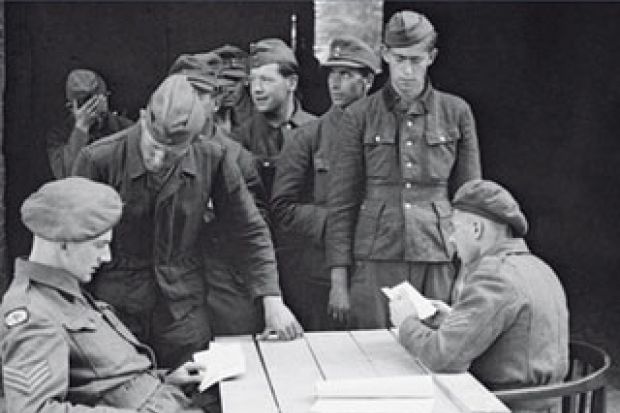Amanda Leigh Cox, doctoral candidate in translation studies, peace and conflict at Concordia University, Canada, is reading Languages at War (Palgrave Macmillan, 2012), edited by Hilary Footitt and Michael Kelly. “Publishing findings from an Arts and Humanities Research Council-funded research project of the same name, this book draws comparisons between the status, responsibilities and training provided to translators and interpreters during Western Europe’s post-1945 liberation and post-1995 peacekeeping in Bosnia-Herzegovina. Provocatively, the findings point to the lack of training provided in both eras and the military’s growing awareness of the high stakes of wartime language and cultural policy.”

Damien Kempf, lecturer in medieval history, University of Liverpool, is reading Otto Dov Kulka’s Landscapes of the Metropolis of Death (Allen Lane, 2013). “Kulka, a historian, offers a poignant reflection on his internment as a child at Auschwitz in 1943-44. Via a rare combination of historical research, memories and dream-like recollections, the author recreates his childhood landscapes of the ‘Metropolis of Death’: a past at once forgotten and forever present, familiar and inconceivable, stretching over the camp’s ruins.”

Roger Luckhurst, professor of modern and contemporary literature, Birkbeck, University of London, is reading Marcel Theroux’s Strange Bodies (Faber, 2013), “a compellingly odd narrative that starts out in the painfully realistic world of academic grind among Samuel Johnson manuscripts but gets progressively weirder until it morphs into full-scale science fiction. The less you know about this novel before reading it the better, but here’s another current writer turning to the extraordinary speculative science of Russian revolutionaries.”

Karen McAulay, music and academic services librarian, Royal Conservatoire of Scotland, has been reading Salman Khan’s The One World Schoolhouse: Education Reimagined (Kindle, 2012). “Khan’s ideas about ‘flipping the classroom’ intrigued me. Could kids really learn by watching YouTube videos, distance learning and online feedback? The evidence is affirmative; Khan’s results impress. But applying the theories to higher education is a challenge to traditions, and the place of research is a little unclear. Maybe we should be open-minded; some ideas could work.”

David Milne, senior lecturer in American political history, University of East Anglia, is reading George Packer’s The Unwinding: An Inner History of the New America (Farrar, Straus and Giroux, 2013). “Packer writes for The New Yorker, so it’s no surprise that this ‘inner history’ of the past 30 years reads elegantly, but the evocative way he shades his portmanteau takes your breath away. In a series of biographical sketches, ranging from shop and factory workers to Newt Gingrich and Elizabeth Warren, he eulogises the unwinding of the ‘Roosevelt Republic’ and decries the organised money that has filled the void – or hasn’t.”
Register to continue
Why register?
- Registration is free and only takes a moment
- Once registered, you can read 3 articles a month
- Sign up for our newsletter
Subscribe
Or subscribe for unlimited access to:
- Unlimited access to news, views, insights & reviews
- Digital editions
- Digital access to THE’s university and college rankings analysis
Already registered or a current subscriber? Login
